|
Saturday, Aug. 09, 2003 | 5:24 PM Book Report
I just finished reading The Robber Bride by Margaret Atwood, and I am thrilled, struck dumb, enthralled. I�d read it before a few years ago and wasn�t too impressed. My estimation was that it paled in comparison to Atwood�s other novels. It was so obvious-- so sudsy and overtly crude in its exploration of female betrayal, which is of course a reoccurring theme in Atwood�s work, the larger sociological ramifications of which are dealt with beautifully in Cat�s Eye and The Handmaid�s Tale. The Robber Bride centers on three women�Charis, Tony, and Roz, all of whom at one time in their lives are befriended and betrayed by Zenia, a woman as single mindedly evil as she is enigmatic-- as far as villains are concerned she makes Iago look like Shirley Temple in comparison. At first glance Zenia appears to be the Bitch Goddess of the Aaron Spelling variety�wreaking havoc merely for the sake of driving plot forward and kowtowing to the presumed voyeuristic blood lust of the female reader. Zenia is paradoxically larger than life-- a vivid pop art cartoon whose methods and madness shift accordingly with the novel's cultural segueways, and barely existent in literal terms. She is more of an impression, an atmosphere than she is a character�like a tornado brewing in the foreground of the novel�s action. I remember being incredibly annoyed with Margaret Atwood when I first read The Robber Bride several years ago. I was living in Somerville with Dave and Alamada at the time, all of twenty one years old and a lot more literal in my appraisement of the world than I am currently. Although it was a lively read--, funny and clever in its lampoonery of the ever shifting paradigm of feminism-- the whole Zenia phenomenon and the melodramatic story arc (No! Zenia stole HER husband too? What a SHOCKER!) seemed facile to me and beneath Atwood as a writer. I also was incapable of buying that the three protagonists�all intelligent women, would be so easily suckered in by Zenia�s manipulative antics. Was Margaret Atwood who had explored the �feminine� psyche so intelligently and with such ruthless sensitivity in her previous work, trying to tell us that women, when it comes down to it, are just plain dumb? Or maybe, I thought at the time, she�s attempting to satirize a society that panders, even in this day and age to the concept of female ineptitude. This was a more noble possibility, but certainly not worthy of an entire 400 page novel by someone who had mined similar territory previously. But having read it again, a bit older and wiser, I am seeing the characters anew. The key to The Robber Bride's brilliance is that Zenia is not simply Zenia. The story, like the Grimm's Brothers' fairytale upon which it is based (and like all myths and fairy tales really) is an allegory. Zenia is representative in the most Jungian archetypal sense of the word. She is at once so large and so indefinable because she is a metaphor, and like all good metaphors, multidimensional and fluid. Where Cat�s Eye and The Handmaid�s Tale served up specific acts of female villainy as being sociologically representative, in The Robber Bride Zenia is the projection of each of the main characters� shadow sides, which is why the protagonists are so easily and alarmingly duped. The story is not about female betrayal in political terms. The Robber Bride at its core explores betrayal of the self. The characters are so deftly handled, and their exposition such a sly trick. We see them as they see themselves and as they are seen by the other two protagonists. We see the gulf between these representations. Finally we see them as they are seen by Zenia and the profound manner in which confronting this shadow projection allows each to revolutionize her own self image. Atwood pulls out so many bells and whistles to distract and delight, so many red herrings for the reader to hang herself upon, that it is easy to miss the subtleties which illustrate the story's essence�this is of course the point. The protagonists themselves are so mesmerized by the operatic degree to which Zenia has �destroyed� their lives, they don�t really �get it� until each confronts her seperately in the novel's funny/scary climax. And even then only subconsciously do they grasp Zenia's true role in their individual journeys. In relation to all this, the novel also deals with the concept of history and point of view (a la Henry James� Turn of The Screw), exploring the old axiom that we don�t see the world as it is but as we are.
time capsule from heaven - Sunday, Aug. 21, 2011
31 - Saturday, Mar. 15, 2008
Dead/Alive - Monday, Mar. 10, 2008
Do not trustTIAA-CREF-- they are fucking their customers - Friday, Jul. 28, 2006
Shilling - Tuesday, Jul. 11, 2006
Before After
|
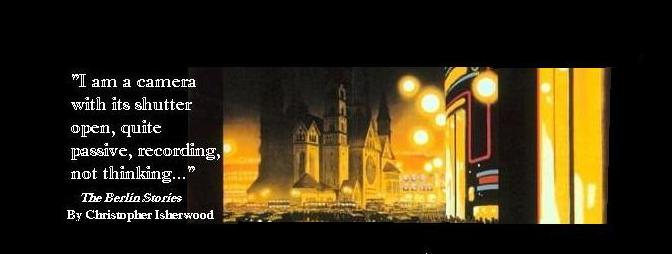
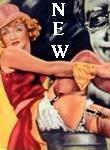
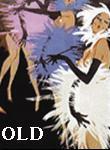
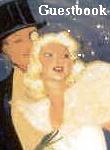
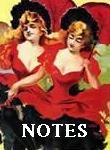

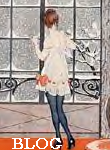

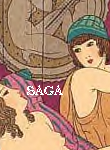
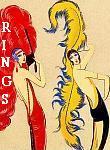
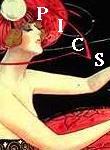


![]()














![]()
